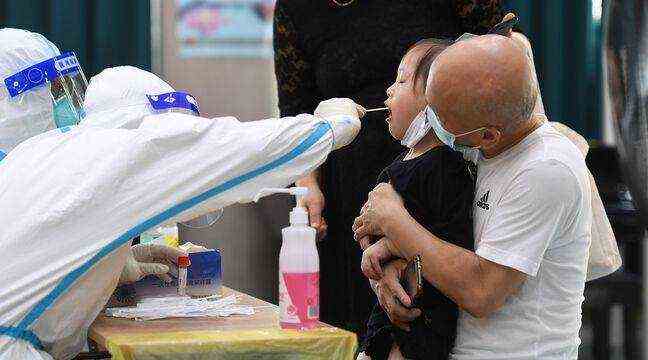Beijing will not give anything more. Despite calls from the WHO for better collaboration in the investigation it is conducting into the origins of the Covid pandemic, China on Friday issued an inadmissibility to the organization. The country where the first cases of coronavirus appeared in late 2019 in the city of Wuhan said there would be no new investigation in China, no additional data, or “politicization”.
International scientists are currently struggling to trace the origin of this virus which has spread across the planet, killing more than 4 million to date. Transmission from an animal? Leak from a Chinese laboratory? This last hypothesis is firmly opposed by Beijing, which does not want to appear to be responsible for the pandemic.
“A political stake”
A team of international experts sent by the WHO visited Wuhan in January 2021 for a “first phase” study on the origin of the virus. They had drawn up a joint report in collaboration with Chinese specialists. The study estimated that the passage of the coronavirus from the bat to humans via an intermediate animal was the most likely scenario. Experts then judged “extremely unlikely” that the virus came from a laboratory.
Defended by Washington in a context of political rivalry with Beijing, this last hypothesis has however been relaunched in recent months by the WHO, which on Thursday asked all countries, especially China, to publish “all the data on the virus “. “In order to be able to examine ‘the laboratory hypothesis’, it is important to have access to all the raw data,” stressed the organization, for whom “access to data should in no case be a political issue. “.
“We only want to protect the privacy of patients”
Beijing responded on Friday by reiterating its position: the China-WHO report has already dismissed the theory of a Wuhan laboratory leak and requests for additional data have political ulterior motives. “We are opposed to the politicization of the search for origins (…) and to the abandonment of the joint report. We support science-based research, ”said Ma Zhaoxu, a deputy foreign minister. Speaking at a press conference, he rejected the new WHO demands. “The conclusions and recommendations of the joint report have been recognized by the international community and the scientific community,” said the official. “Future research should, and can only be pursued on the basis of this report. It’s not about starting all over again. “
Regarding the raw data requested by the WHO, in particular on the first patients in Wuhan, China has once again taken refuge behind medical secrecy. “We only want to protect the privacy of patients,” Liang Wannian, head of the delegation of Chinese scientists who collaborated on the China-WHO report, told reporters on Friday. “Without their consent, no foreign expert has the right to photograph or copy the original data. “
The hypothesis of the leak of a laboratory relaunched
Long brushed aside by a number of experts, the hypothesis of the leak of a laboratory has been relaunched in recent months. It is even more so after the new shocking statements of Peter Embarek, the Danish head of the delegation of international experts who visited Wuhan in January 2021. In a documentary broadcast Thursday by Danish public television TV2, the scientist showed himself for the first time very critical of Beijing. “Until 48 hours before the end of the mission, we still did not agree to mention the ‘laboratory thesis’ in the report,” said Mr. Embarek.
Following these discussions, the WHO delegation finally obtained permission to visit two laboratories where research is carried out on bats, he explains. “We were able to talk and ask the questions we wanted to ask, but we did not have the opportunity to consult any documentation,” regretted Peter Embarek. “An employee (of a laboratory) infected in the field while taking samples falls under one of the probable hypotheses. This is where the virus passes directly from bats to humans. He added that none of the bats live in the wild in the Wuhan area. The only people likely to have approached the bats suspected of harboring the virus that caused Sars-Cov-2 are, he said, employees of the city’s laboratories.

